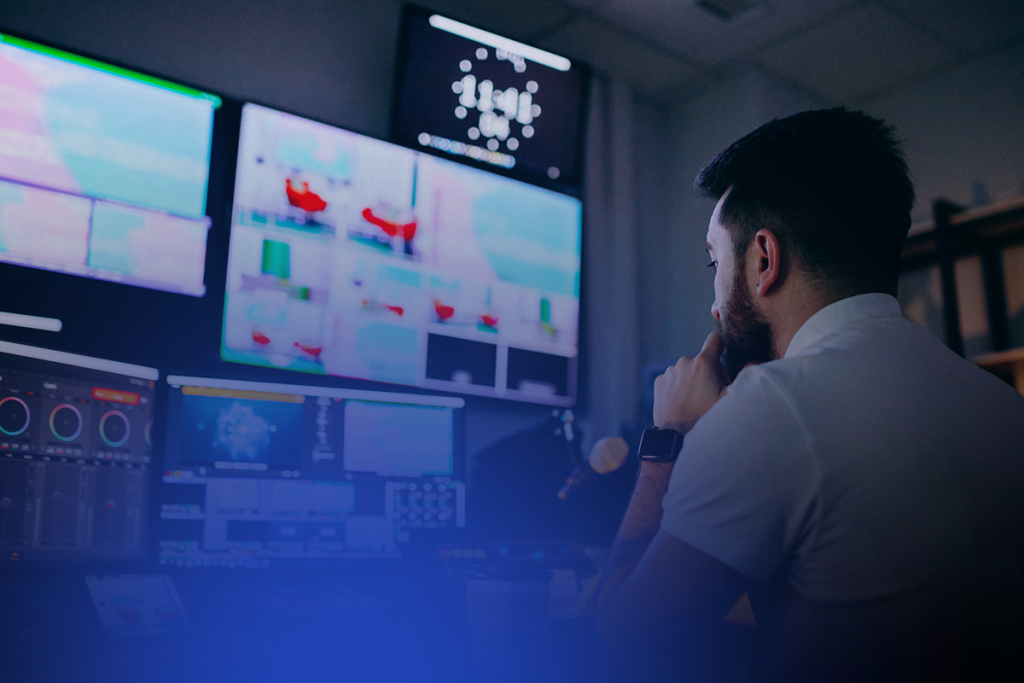The health industry has undergone various digital disruptions throughout the years. Healthcare organizations closely monitor emerging digital technologies that may alter the industry. Healthcare organizations were quick to react when AI first entered the scene. They applied AI to many different tasks, including better patient care, report generation, research, and many others. Over the years, new AI-led technologies evolved inside the healthcare sector. AIOps in healthcare and generative AI are the hottest topics in terms of cutting-edge medical technology. For better diagnosis and treatment strategies, generative AI is already widely used in the healthcare industry worldwide. Read on to explore how generative AI and AIOps are revolutionizing the healthcare business.
Understanding the concept of Generative AI
A subset of artificial intelligence called “generative AI” aims to create new content. The input data is used to generate the new content. The input data could be unstructured or normal text. The input is transformed into various sorts of content using generative AI, depending on the needs. Images, text, audio, and other kinds of artificial data can be created by generative AI. Generative AI could only produce text data when it first appeared in the 1960s. The first generative AI-based content was created by chatbots.
Over the years, advancements in generative AI opened new doors. Generative adversarial networks came into the scene that could produce graphics, videos, and images. The best part of generative AI is that it can produce new content within seconds. Healthcare entities use generative AI to create medical imagery, MRI reports, and X-rays quickly. Since timing is critical in the healthcare sector, generative AI helps increase the speed of generating new content. Many healthcare entities also use generative AI to create custom treatment plans for different patients based on their treatment history. There are other use cases of generative AI in the healthcare sector, from improved drug discovery to health management.
Understanding how does generative AI help in the healthcare sector
Healthcare sector experiences benefits from every new-age technology. Healthcare entities may not invest in new-age technologies if they don’t see the gain from it. Let’s take AIOps in healthcare for example, it is used to increase service availability of software systems. The following are few of the benefits of using generative AI in the healthcare sector:
1. Modern and Advanced Drug development
Healthcare entities invest heavily in drug discovery and development. The discovery of a new drug for an existing medical condition can help healthcare entities boost their ROIs. Newly synthesised drugs must be tested on animals or humans before launching into the market. However, there is always a risk involved with drug testing on animals or humans. Generative AI can help identify the right candidates for drug testing based on their bodily functions. It can also run simulated tests on different candidates in synthetic environments. When the chances of success are high, a real test is performed on the selected candidates.
2. Personalised care plans
A custom treatment plan is prepared according to the medical history of a patient. The bodily functions of a patient are also considered for creating a custom medical plan. However, healthcare entities fail to create custom treatment plans for each patient. Since the healthcare sector deals with many patients daily, it is a challenge to create a personalised treatment plan for each patient. Generative AI can take the medical history, symptoms, and bodily functions of the patient as input to generate custom treatment plans. Healthcare entities do not have to worry about the service availability of a software system that generates treatment plans. Since generative AI can produce custom treatment plans within seconds, there is no need for an external software system.
3. Modern and advanced medical imagery
Traditional medical imaging solutions produce reports after a long period. At the same time, healthcare entities also must worry about the service availability of the medical imaging solution. If the software solution loses its service reliability, the healthcare entity might fail to produce medical images, x-rays, and MRI reports. With generative AI, the time taken to produce medical images is reduced drastically. Also, generative AI can identify abnormalities in medical images. Doctors and diagnostic experts will be informed of the existing problem by the generative AI system.
4. Better healthcare initiatives
Generative AI can analyse large amounts of data within seconds. Healthcare entities have to focus on population health management to launch specific services. For example, healthcare entities might deploy new treatment techniques for people in an area known to possess hereditary diseases. Generative AI can analyse demographic information on a granular level and generate rich insights. If healthcare entities are looking to launch healthcare schemes for some areas or unrecognised communities, generative AI is the right choice. Even government healthcare organisations can use generative AI for better population health management. Governments are expected to invest heavily in generative AI for launching effective public healthcare schemes.
The necessity for Generative AI regulation in the healthcare industry
There is a need to regulate generative AI in the healthcare industry. The healthcare sector is all about precision and accuracy. A second delay in service availability can cause a patient his/her life. For the same rationale, healthcare entities must use technologies that always make the right decisions. Many healthcare organisations are still researching the possibilities of generative AI. It is found that generative AI can be biased or opinionated at times.
When generative AI is biased, a healthcare organisation might face ethical concerns. Healthcare entities cannot depend on biased software solutions that might pose a risk to patients. However, the issue can be solved by training the generative AI model in the right way. Misuse of generative AI is another ethical concern for a healthcare entity. Employees might think that generative AI can replace their jobs. A healthcare entity must focus on navigating through the ethical concerns of generative AI.
Conclusion
The implementation must be done correctly, whether it is generative AI or AIOps in healthcare. You cannot expect generative AI systems that have not been trained to produce better judgements. An organisation must strive to address ethical issues in addition to training generative AI models.




